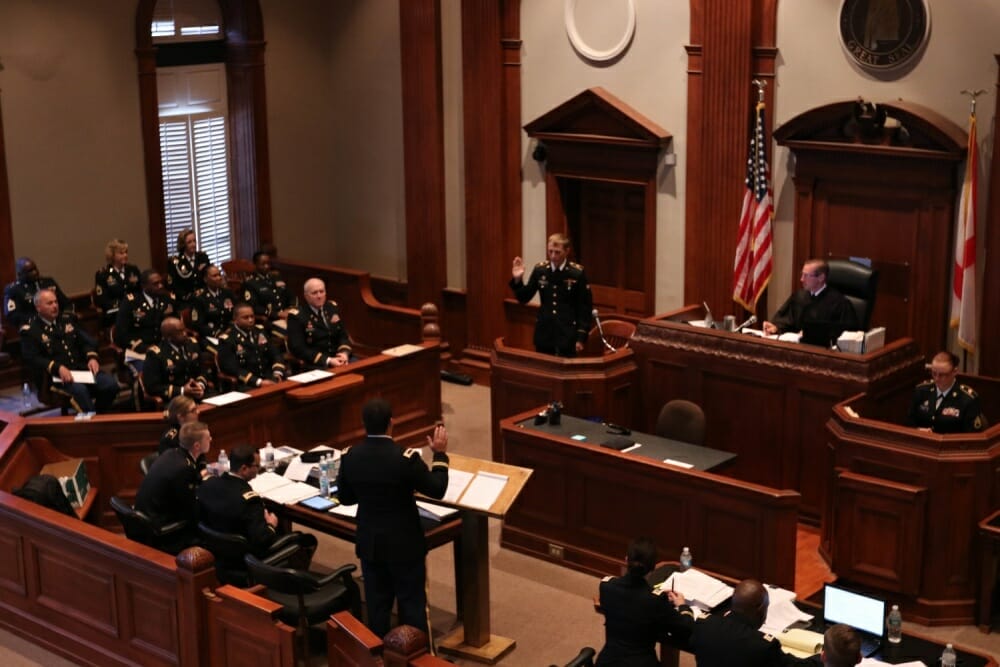Understanding the difference between military and civilian courts can make a huge difference when being accused of a crime while in the military. In addition, knowing what your rights are and what court proceedings are to follow will allow you to brace yourself for what’s to come after being charged as an active duty member.
Joining the military comes with a separate set of laws, responsibilities, and privileges. Additionally, military criminal courts have different procedures and punishments than civilian courts, and offenses committed by military members are tried in a military court.
Civilian Courts vs. Military Courts
The civilian court system is subdivided into two classes: the criminal court, which handles unlawful activities, and the civil court, which deals with all other legal disputes. If you are charged with an offense that violates both civilian and military law, you may be charged in civilian court, military court, or both.
Military trials can be handled in three ways, based on the severity of the offense and the maximum penalties applicable.
- General Court-martial: Involves most severe, felony-level crimes. Possible punishments include dishonorable discharge, forfeiture of pay, life imprisonment, and the death penalty. In general courts-martial, the judge and at least three-quarters of the enlisted members agree on the final verdict.
- Summary Court-martial: Handles minor crimes using simple procedures. If proven guilty, punishments could include forfeiture of pay, confinement of up to a month, hard labor, and reduced military rank.
- Special Court-martial: Deals with misdemeanor crimes and penalties may include hard labor for up to 90 days, a bad-conduct discharge, forfeiture to pay, and confinement for up to one year. This court requires the agreement of at least three-quarters of the four enlisted members to charge the accused.
Unanimous Verdict vs. Split Verdict
The main difference between the military court and the civilian courts lies in the form of the verdict delivered. In civilian cases, all jury members must vote unanimously for a conviction. On the contrary, military courts allow for the split verdict for criminal trials, where a three-fourths majority must vote for conviction.
Contact our Military Defense Attorneys
If you face criminal accusations while in the military, you may want to fight to maintain your reputation, keep your job, and keep your records free from court martial. Similarly, you might want to fight against possible jail terms and harsh penalties delivered by the federal civilian court.
Either way, it is important to learn your options to know what to expect. The best place to start is to hire an experienced military defense attorney to help protect your rights and prepare a strong defense against your accusations.
If you need help, our military defense attorneys from Golden Law Inc. are here to help. Contact us at 949-491-1661 to discuss your case details with Andrew Cherkasky, our leading military defense attorney.






